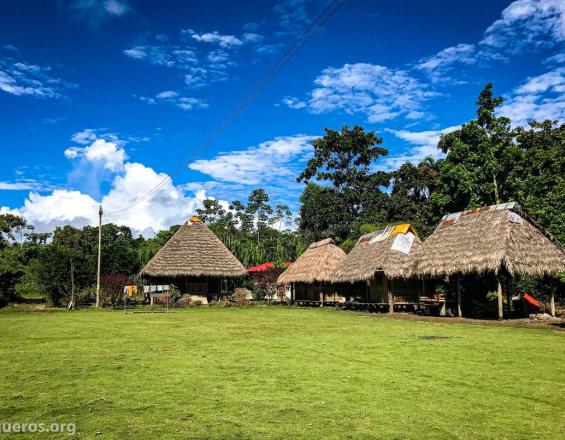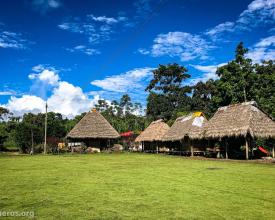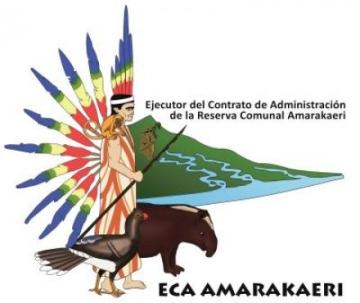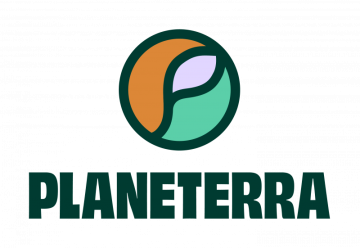
Tourism and governance in Queros Wachiperi

Governance contemplates relationships between people, institutions and traditions on which agreements are made. Sernanp and the Executors of Administration Contracts (ECA) have been implementing a shared governance model to co-manage the Amarakaeri Communal Reserve (RCA). With shared and intercultural governance, in 2018 the RCA was certified by the Green List of and in 2019 received the Equatorial Award.
Queros is one of the base communities and partner of ECA Amarakaeri. In 2007 he started a tourism venture focused on rescuing the Wachiperi culture. As it is a sustainable economic activity and rescues the local culture, it seeks to consolidate it for the development of the community. With support from IUCN/Planeterra, an Action Plan was developed to reactivate post-pandemic tourism, which was aligned with their plans for full life and territorial governance, the Master Plan, the agreements for full life or conservation, and local, regional and national development plans.
Impacts
- The proposed activities are based on a previous diagnosis in which the community's own needs were identified, considering its proximity to another protected area and access by a high Andean route.
- Infrastructure was improved with the installation of 7 community houses to provide community tourism services and coordination is underway with the local authority to implement the water improvement project.
- The skills of the service providers have been improved and the product has been diversified. Community members have been trained in the management and operation of tourism experiences; and three new itineraries have been designed for the ecotourism and adventure segment.
- In terms of commercial articulation, audiovisual material of the tourism experience has been systematized, and information on content and products has been updated on the web page. Finally, the community has two management tools to provide follow-up and feedback on the tourism services provided: the Gold Book and the Complaints and Grievances Book.
- Shared governance makes it possible to implement the Redd+ Amazon Indigenous RIA climate action strategy, which promotes adaptation, mitigation and resilience activities, a holistic management proposal for development based on standing forests.


